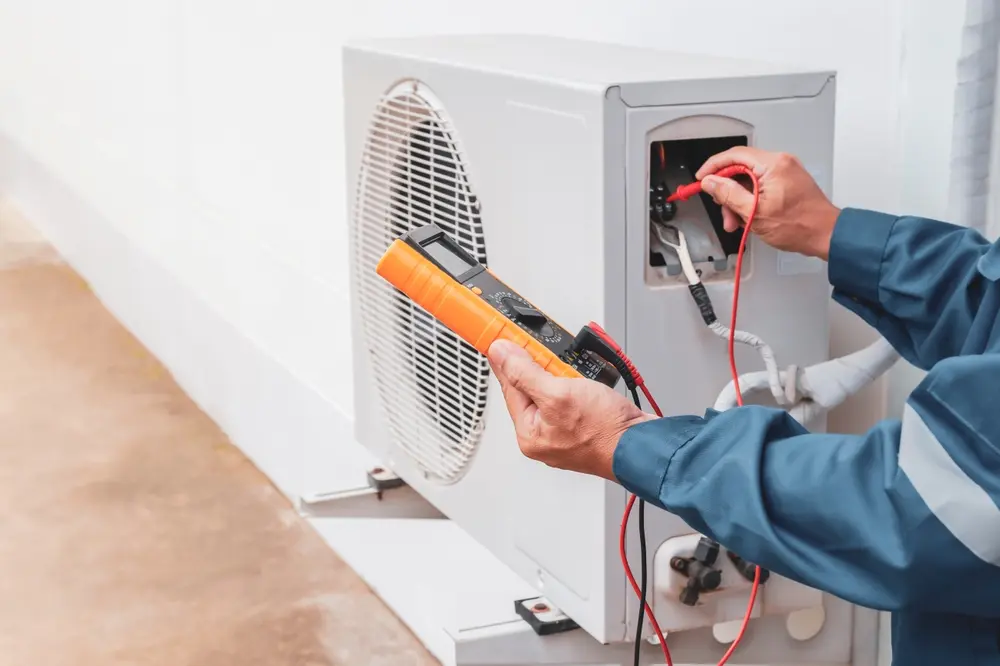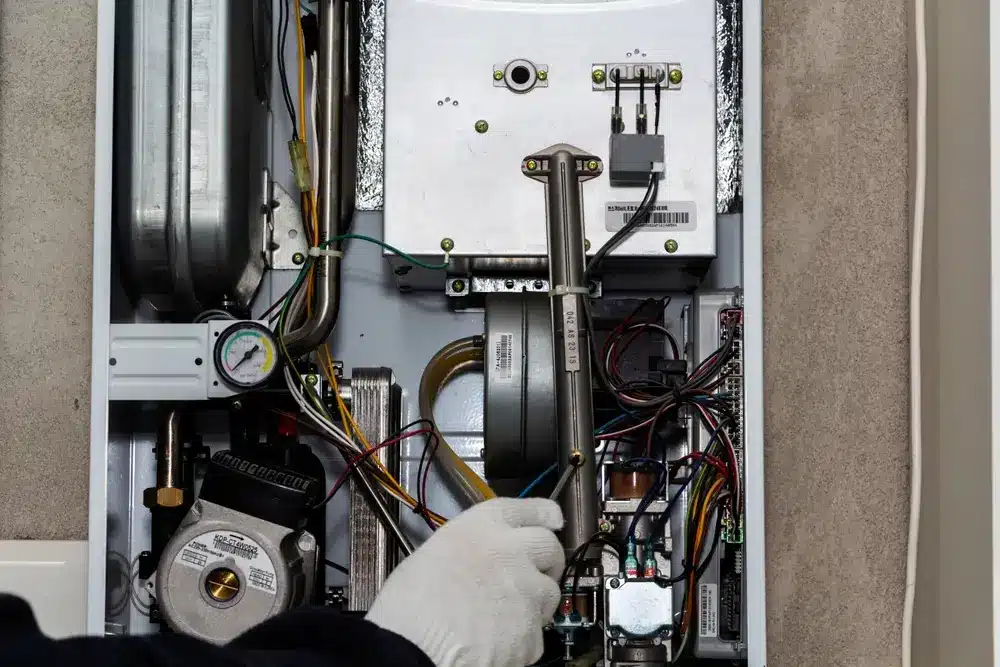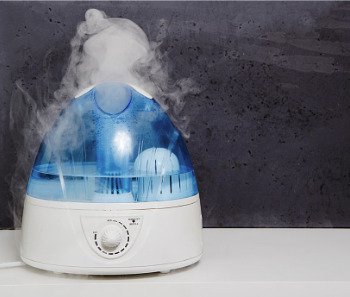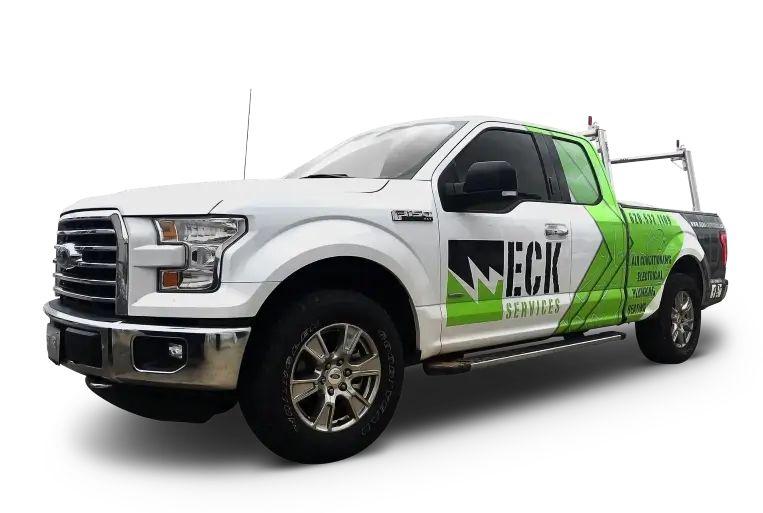Blog
Annual Furnace Maintenance Guide & Why It’s Important
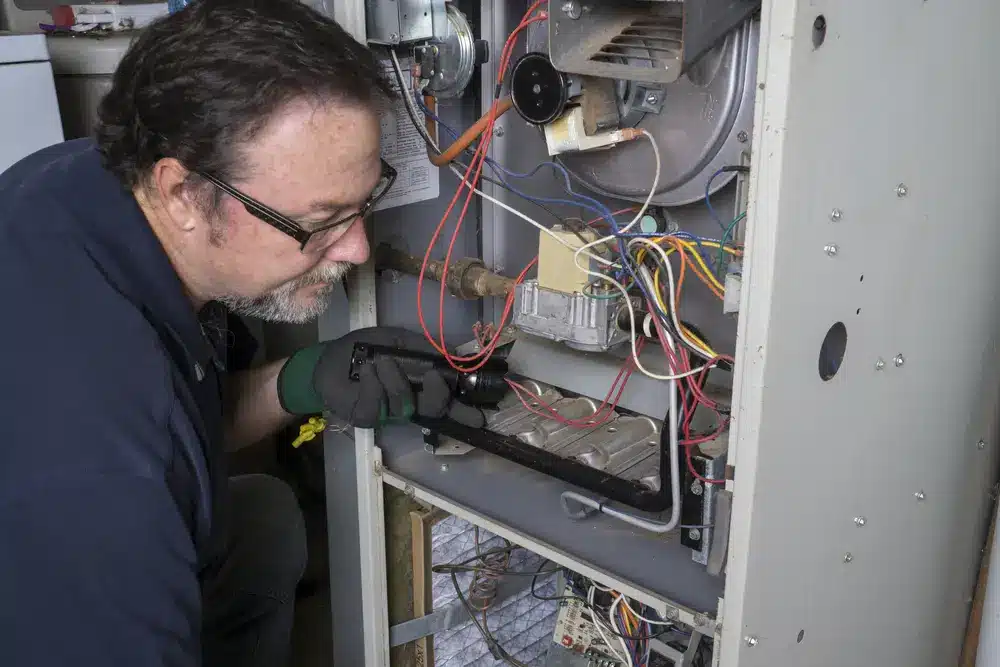
Installing a new furnace is a significant investment of time and money, but indoor comfort is priceless. Get the biggest return on your investment and stay warm during the winter by scheduling routine furnace maintenance.
Sound intimidating? Don’t sweat it. Along with basic furnace troubleshooting tips you can safely administer at home, this guide will recommend a timeline for scheduling professional furnace cleaning appointments and outline what you can expect during these visits.
Beyond home comfort, we will illustrate the many benefits of a well-maintained heating system.
The Importance of Furnace Maintenance & Service
Scheduling annual furnace maintenance appointments keeps your system operating at peak efficiency for as long as possible. Professional furnace cleaning companies know exactly what to look for and what to do, preventing unexpected malfunctions by implementing industry-certified methods. Maximize the benefits of your appointment by scheduling in the fall, just in time for cooler temperatures.
Safety
Regular furnace maintenance is vital for protecting your family from carbon monoxide hazards and other potential health risks. By conducting annual inspections, trained HVAC technicians can identify and address potential gas leaks, electrical issues, and other safety concerns before they pose dangerous threats to your home and those inside.
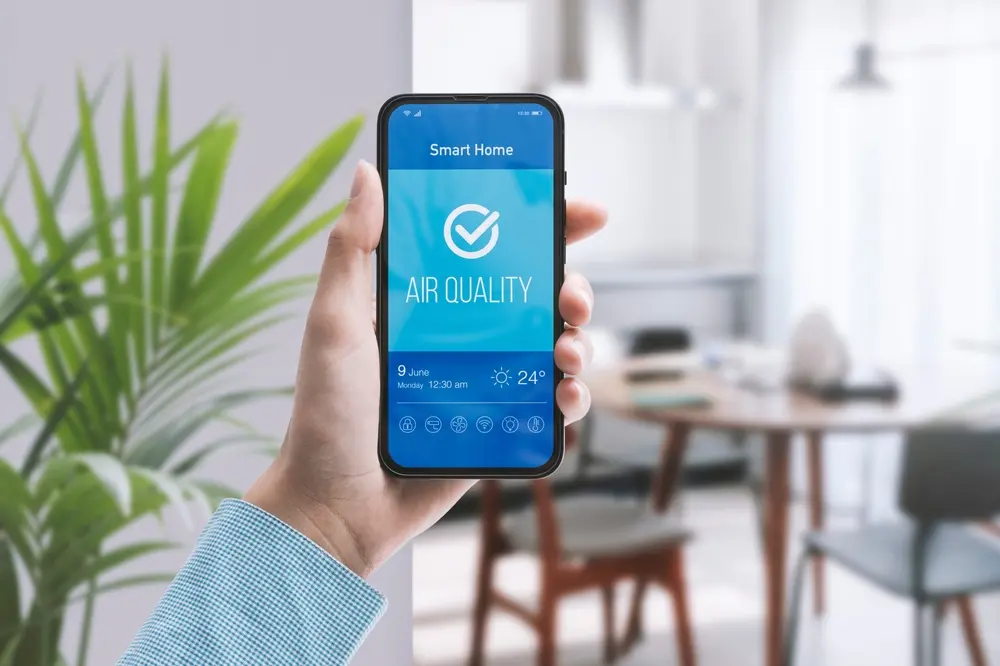
Cleaner Air
A professional furnace maintenance visit isn’t complete without a thorough cleaning to improve indoor air quality in your home. By replacing air filters and removing accumulated dust and debris from within your heating system, a professional furnace cleaning service:
- Reduces allergens
- Minimizes respiratory irritants
- Creates a healthier environment
Optimal Airflow
Professional furnace tune-ups ensure that your heating system maintains proper airflow, which is essential for preventing unnecessary strain on critical components. Using static airflow testing equipment, technicians can identify and resolve restrictions that might otherwise compromise your furnace's performance, ultimately protecting your heating system from premature wear and potential breakdowns.
Energy Efficiency
Annual maintenance allows HVAC professionals to clean and fine-tune your furnace's components, optimizing its overall performance and energy consumption. A well-maintained furnace operates more efficiently than a neglected one, translating to lower monthly energy bills and a reduced environmental impact. For this reason, regular furnace maintenance is an economically and environmentally responsible choice.
Longevity
Furnace maintenance is also the key to maximizing your heater’s operational lifespan. By scheduling annual tune-ups, you can protect your investment in home comfort, potentially extending your furnace’s functional life to 15-30 years without costly, premature replacements.
Annual Furnace Maintenance Checklist
During a professional furnace maintenance visit, technicians will comprehensively inspect and service your furnace by addressing the key components that directly impact its efficiency and longevity.
Here's a detailed breakdown of the steps included in a professional furnace maintenance checklist:
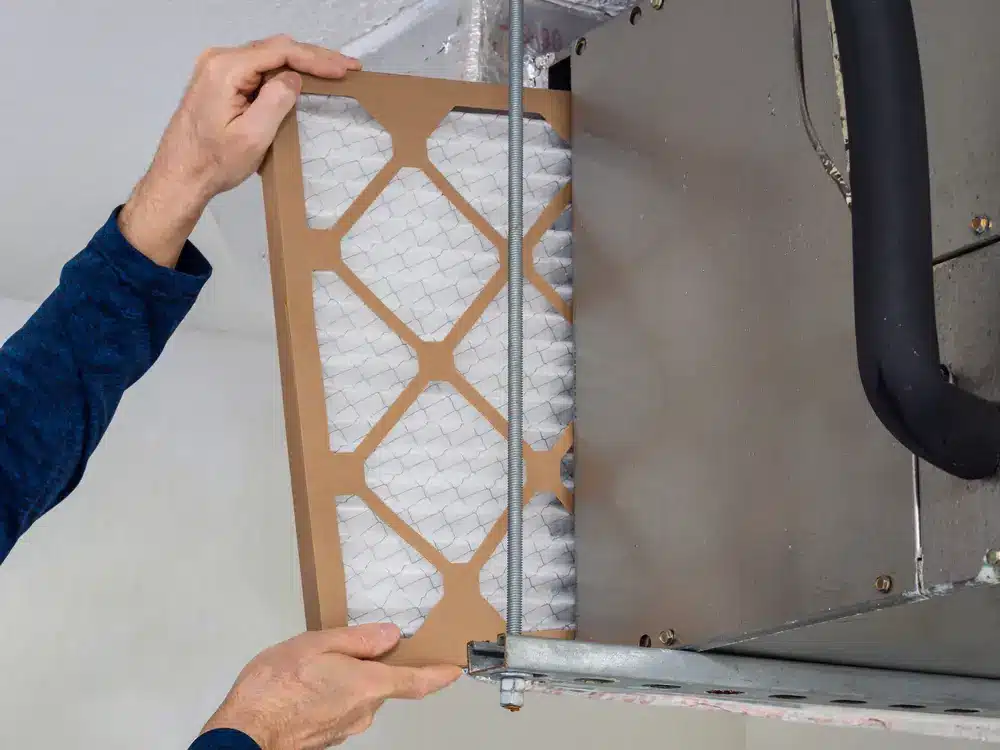
- Air Filter Service: Technicians will inspect, clean, or replace the air filter to ensure proper airflow and air quality.
- Thermostat Assessment: A thorough check of thermostat operation to guarantee accurate temperature control and system responsiveness.
- Heating Performance Testing: Precise temperature readings will be taken from return and supply ducts to verify the heating output meets manufacturer specifications.
- Combustion Chamber Maintenance: Careful cleaning and inspection of the burner, crossover, and ignitor to ensure safe and efficient operation.
- Gas Valve Adjustment: Precise checking and adjustment of the gas valve to maintain proper fuel flow.
- Pilot Light System: For older furnaces—an evaluation, cleaning, and tuning of the pilot light system.
- Heat Exchanger Inspection: Comprehensive cleaning and examination for any cracks, holes, or potential leaks that could compromise system safety.
- Blower System Service: Detailed inspection and cleaning of the blower and blower motor. (May require partial disassembly.)
- Electrical System Check: Inspection for burned wires and other problems that could indicate underlying issues.
- Ductwork and Flue Pipe Examination: Careful inspection of the flue pipe and ductwork to ensure proper ventilation.
- Fuel Supply Verification: Checking for any leaks in the gas line and other fuel supply components to prevent potential safety risks.
Furnace Troubleshooting & Tips
While professional maintenance is crucial, homeowners can take some proactive steps to support their furnace's performance.
Regular DIY maintenance between professional visits includes:
- Replacing or cleaning air filters every 1-3 months.
- Inspecting and cleaning vents and air return ducts.
- Verifying thermostat functionality.
- Keeping the area around the furnace clear of debris.
- Listening for any unusual noises.
When to Call A Professional for Furnace Service
Not all furnace issues are suitable for DIY repair. Knowing when to call a professional can save you from costly mistakes and potential safety hazards.
Signs You Need a Furnace Inspection & Maintenance
Here are critical signs that indicate you need professional furnace service:
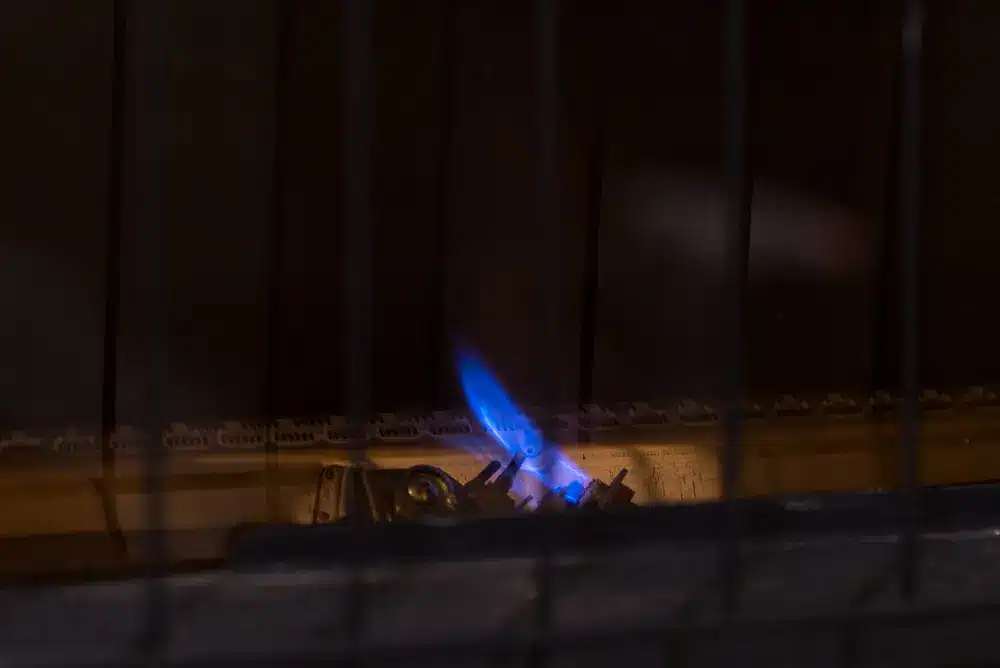
1. Lack of Heating: If changing the thermostat doesn't resolve heating issues, it's time for a professional inspection.
2. Increased Energy Bills: Unexpected spikes in energy costs can signal inefficient system performance due to dirty or malfunctioning components.
3. Unusual Odors:
- A rotten egg smell could indicate a dangerous gas leak.
- Burnt odors might suggest dust burning off or more serious issues like motor failure or electrical problems.
4. Abnormal Sounds: Any noises beyond the typical "click and whoosh" of normal operation warrant professional investigation.
5. Short Cycling: Frequent turning on and off can result from various issues, including:
- Tripped safety sensors
- No burner flame detection
- Overheating due to poor airflow
- Incorrectly sized system
6. Pilot Light Concerns (Older Units): A yellow or orange pilot light—or difficulty maintaining a consistent flame—could indicate fuel supply problems or require professional cleaning.
Extend the Life of Your Furnace with Regular Maintenance
At Eck Services, we understand the consequence of neglecting furnace maintenance. That's why our technicians are committed to providing knowledgeable, reliable, and professional heating services throughout communities in Central & Southeast Kansas. Whether you live in Wichita, Pratt, or Hutchinson, we’re here to keep your home comfortable and warm during the winter—and throughout your heating system’s long lifespan.
Don’t let small issues turn into major headaches. Proactively protect your investment in home comfort with Eck Services’ professional furnace maintenance services.

FAQs About Furnace Maintenance
How much does a typical furnace maintenance service cost?
Furnace service cost is typically influenced by local markets and the depth of service required. A basic maintenance package covers essential tasks like filter checks, cleaning, and basic safety inspections. For a more comprehensive service that includes detailed heat exchanger evaluation, operational sequence checks, and advanced safety screenings, homeowners can expect to invest a little more. Despite the expense, regular furnace maintenance saves money over time by preventing costly repairs and maintaining your system’s efficiency.
How long does furnace maintenance & service take?
Though the exact duration depends on several factors, professional furnace maintenance typically requires between 90 minutes and 2 hours. Newer furnaces in clean, accessible locations might require less time—potentially less than an hour. Older systems or those requiring more extensive inspection and cleaning could extend the length of service time. Your HVAC technician will provide a more precise timeline after initially assessing your specific furnace’s condition and age.
What maintenance should you do on your furnace?
Your furnace is a complex mechanical system—its many moving parts require consistent attention and professional care. However, there are several proactive steps homeowners can take on their own to support their furnace’s performance:
– Replace or inspect your furnace filter every 1-3 months, following manufacturer recommendations.
– Keep the area around your furnace clean and free of debris.
– Listen for unusual sounds or notice any changes in operational performance.
– Pay attention to potential odor changes during operation.
– Schedule annual professional maintenance services with a qualified HVAC technician.
While these basic maintenance procedures can be performed by homeowners, nothing replaces the comprehensive inspection and tune-up provided by a professional. Annual professional maintenance ensures your system operates at peak efficiency, prevents unexpected breakdowns, and helps extend the overall lifespan of your heating system.



